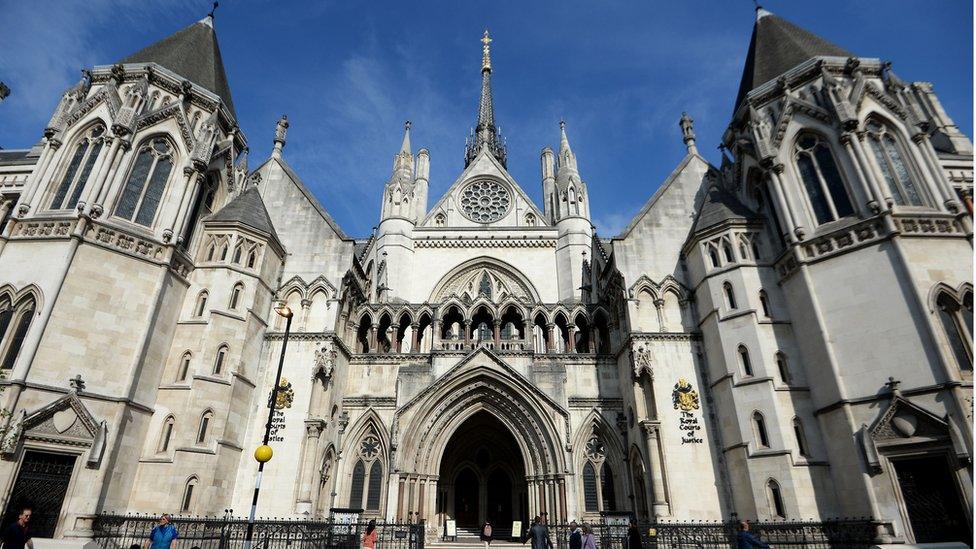St Helens factory worker wins extradition fight over theft conviction
- Published

The High Court judge ruled Barbara Murawska's extradition would unfairly infringe her human right to respect for family life
A UK factory worker who was given a suspended jail sentence after being convicted of theft in Poland has won a High Court fight against extradition.
Barbara Murawska, 64, of St Helens, Merseyside argued being forced back to Poland would unfairly infringe her human right to respect for family life.
Mr Justice Linden said the public interest in extradition and the UK not being seen as a "safe haven" was "very powerful".
However, the judge ruled in her favour.
The High Court heard a judge at Westminster Magistrates' Court had previously ordered Ms Murawska's extradition after Polish authorities made an application and a European Arrest Warrant was issued.
She had been given a six-month jail term, suspended for three years, after being convicted of theft a decade ago and had appealed against that extradition order.
'Unusual circumstances'
The "total value of the thefts" was "in the order of £337", Mr Justice Linden was told.
She had been "released" from her sentence on condition she maintained contact with the Polish probation service.
But she had left Poland, lost contact with the probation service, and had been ordered to complete her sentence by Polish authorities.
Lawyers representing Ms Murawska made several arguments against extradition, including that she was in close relationship with a long-term partner, that she would lose her job and that there were "only" two months and 13 days left on her sentence.
They also pointed to the "impact" imprisonment would have on a woman of her age and to the "degree of seriousness" of the offences.
The judge outlined his reasoning in a written ruling after considering arguments at a recent High Court hearing in London.
"The public interest in extradition and in the [UK] not... being seen to be, a safe haven for offenders fleeing the criminal justice system in their own countries is a very powerful one," said Mr Justice Linden.
However, he said "on balance... I am satisfied in the unusual circumstances of this case the weakened public interest in extradition and the very limited extent to which that interest is likely to be advanced by the extradition of the appellant, are outweighed by her... rights to respect for their private and family life and home."

Why not follow BBC North West on Facebook, external, Twitter, external and Instagram, external? You can also send story ideas to northwest.newsonline@bbc.co.uk